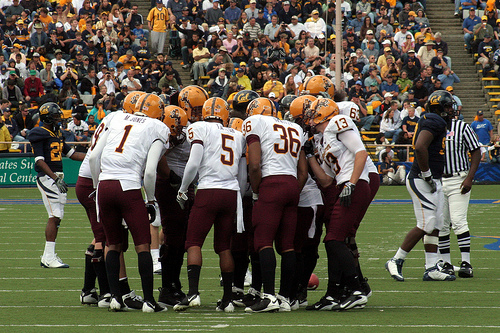Published on
Fostering Community Among Online Students

The following is a Q&A conducted with Susan Gilbert, the Dean of the School of Business and Management at Thomas Edison State College. In this interview, Gilbert explains how online institutions can create a sense of community among its students and a lasting connection between the students and the institution.
Higher education is beginning to change – larger and for-profit universities are beginning to offer more online, distance and flexible options. What is TESC doing to stay on top of the market?
We are doing what we have been doing for 40 years now – providing flexible, high-quality collegiate learning opportunities for self-directed adults. Since our inception, Thomas Edison State College has been dedicated exclusively to serving adults who want to complete their degree. We do that by removing the barriers that prevent many nontraditional students from achieving their educational goals. We have a generous credit transfer policy and enable students to earn credit for what they already know. We are a national leader in the assessment of adult and experiential learning and a pioneer in leveraging technology in higher education. The school wasn’t founded to provide online learning, but we have always been focused on serving adults and the online pedagogy just seemed to be best for ensuring adults would have access to education.
We are not surprised that so many schools are adding online delivery and changing their focus to serving online learning and adult students. We’re doing what we’ve always done, which is developing degree programs and areas of study so that the curriculum is relevant and experimenting with new technologies to make sure education remains accessible. We just won an Innovation in Technology in Distance Education award for putting courses on USB drives so that students can do their work offline and then on a periodic basis upload their assignments to discussion boards, as opposed to having to be connected in order to do work. You can complete assignments on an airplane, a ferry, a commuter train or anywhere for that matter.
We were talking with publishers about electronic textbooks before these new technologies came out that gave electronic access to textbooks to students. We also offer online proctoring of exams so students don’t have to go to testing centers.
It’s all about delivering the education around the needs of our students and enabling them to access their program where and when they want to.
How does the community of an online classroom compare to a more traditional classroom format?
An essential part of all online courses is the discussion board. Students are required, as part of the syllabus and as part of their grade, to post meaningful comments and there are actual rubrics associated with whether or not their comments are going to get full credit versus 75 percent versus 50 percent versus 0.
I can recall being in front of a classroom with a large seating chart and trying to keep up with the comments being made. I would be ticking off the right boxes when people spoke in class but it’s tough to do and very distracting to the flow of discussion.
In an online class, students can think about the question—they may have 24 hours to 48 hours to post—do some research on the question and post really meaningful, well-developed responses to the questions. In addition, students tend to develop robust communities within each course. I’m fascinated by what takes place; the congratulatory notes that occur from student to student, not necessarily on the discussion board but behind the scenes. As administrators, we do not typically see students calling each other for help in interpreting comments and in doing assignments and so forth. That happens so frequently that one recent graduate told me she’d formed a much closer relationship with the students in her online class than she formed with students in traditional classes while going part time. This was a nursing student who’d gotten numerous degrees both part time in traditional schools and at Thomas Edison State College.
There is a very lively and supportive community here and it is, for the most part, an organic, student-driven process.
How much does the administration do to foster a connection amongst online learners?
We connect with students through newsletters to provide latest information about the college, and surveys to get feedback on course proposals, degree proposals and student satisfaction.
Online tutoring is available for students who need extra academic help and academic advising is available to help students stay on their degree plan and graduate within their specific time frames. This covers academic questions, student advising questions and registration issues about financial aid and their tuition bill.
What I have seen at Thomas Edison that is very refreshing is students are (a) very happy and (b) seem to be pleased with the consistency of the material, the format, the pedagogy and so forth from class to class. You’ll still get an occasional grading complaint, but rarely are complaints about the course mentor or quality of the curriculum.
I attribute this to our instructional designers, who create outcome-based, structured classes. The amount of homework assignments is consistent from class to class. The level of difficulty of exams and assignments is carefully designed. Students know what to expect and if they take two courses rather than one course at a time, they know it will be twice as much work or twice as much time. As opposed to what you tend to see in more traditional programs where you can go from having a fantastic and charismatic professor compared to someone who stumbled into the classroom on the way home from their full-time job, gave you some slides from a textbook and then went home—phoning it in.
I’m reflecting on some of my experience with part-time education elsewhere, where I felt that the part-time students don’t always get the highest quality resources, especially if they’re learning at night, where the quality of the classroom experience varies widely from course to course. At Thomas Edison State College, that’s not the case.
We don’t have standing, full-time faculty, and the focus of the course isn’t on the person standing in front of the classroom. Rather, it’s on the course itself, the learning materials, the class goals and a fully laid-out curriculum. Where traditional institutions have faculty who serve as instructors, Thomas Edison State College have mentors who facilitate learning by guiding students through course assignments, grading course assignments and exams and facilitating the online discussions. Our mentors are typically standing faculty at other regionally accredited institutions who are experienced in online pedagogy and working with nontraditional students.
Are professors connected in with the rest of the program? Can they advise across courses?
Oh sure! Students and the mentors have good relationships. Many of our mentors have been at Thomas Edison State College for 30 years. There’s a loyalty there, it’s just a different structure from traditional institutions. At Thomas Edison State College, they are focused solely on their students and not on other institutional issues, such research, leading committees or any other types of service.
What about between online students and the brick-and-mortar institution? How do you create loyalty between students and TESC?
When you serve students all over the world and rarely get to meet them in person, it can be challenging to create loyalty. But we know that we make an impact in our students’ lives.
According to the college’s annual graduate survey, more than 98 percent of our graduates say they would recommend Thomas Edison State College to someone else.
In 2011, the American Council on Education conducted a survey of 8,800 alumni from 22 colleges and universities from across the United States to rate their satisfaction. Our alumni gave Thomas Edison State College high marks. Some of the highlights of that study were that 96 percent of our alumni said their college education was worth it, compared to 76 percent nationally; and 85 percent of our alumni said they were effectively prepared with the education they received, compared to 81 percent nationally.
Another interesting note about loyalty is the high number of students who complete an undergraduate degree at Thomas Edison State College and come back to earn a graduate degree with us.
In addition, I do hear about students who tell us they never expected to be able to get a college degree, who tried and failed earlier in life, who put it off because life got in the way and who never found the money or the time. They tell us they are incredibly grateful that Thomas Edison State College gave them the opportunity to get a college degree, especially students who are able to earn credit through on-the-job training and other experiences.
One example where that happens a great deal is in the military. People in different branches of the service receive an abundant amount of leadership training, strategy training, technical training and project management training. Immigrants may be able to earn credit for languages that they know. McDonald’s employees receive human resources training at Hamburger University, and all of these can be converted into credits. Not to mention the numerous professional licensures and certifications, including Microsoft certifications, that are worth credit at Thomas Edison State College.
All of this helps build loyalty with our students.
How do you foster connections between the school and its alumni base?
Engaging with our alumni is extremely important. Our alumni told us they were interested in networking opportunities that enabled them to connect with the college and each other. As we serve students at a distance and at their locations (not our location), we facilitate this via social media and at various events throughout the country.
Regarding the events, we tend to focus on industry-specific opportunities such as national conventions and conferences where our alumni will be. We also focus on specific geographic regions where we have large concentrations of alumni. In both cases, we typically hold smaller groups getting together for meaningful networking that fosters professional relationships as well as personal relationships. Social media fosters these connections.
Our engagements with alumni have also revealed a common desire for our graduates to serve as mentors to potential students and ambassadors of Thomas Edison State College. These graduates typically talk to their co-workers, friends and family members about going back to college as an adult and suggesting they apply to Thomas Edison State College. These word-of-mouth advertisements and personal endorsements are priceless.
We measure our alumni engagements through more than the Annual Fund. We look at the number of alumni who refer us students, we look at alumni that speak on behalf of the college at various events and those who share their stories with us for our various publications and website. This all speaks to a high alumni engagement score.
Author Perspective: Administrator



